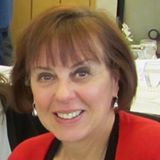Shabbat has always meant three things to me: family, food, and community.
Growing up, I had to be home for dinner on Friday night. No excuses. As many hours as my dad worked during the week, Friday night dinners were sacrosanct. We began with my mother lighting two candles set into candlesticks her mother had carried with her from Lithuania. These candlesticks were not made of fancy silver. No, they were fashioned from a heavy brass and spotted with black marks from generations of candle drippings and burnt matches.
Those brass candlesticks came to mean a lot more to me as I grew up when I learned this bubbie’s story. Sarah Deborah Cohen Katz, whom I never knew, journeyed back to Lithuania – alone — in an attempt to convince her family to leave Europe before the Nazi death machine took over. That she showed such amazing courage inspires me to this day and makes her candlesticks that much more precious.
After candle lighting, my dad would recite kiddush in a booming baritone and say the motzi over challah made by Bubbie Fannie, Dad’s mother – the only grandparent I knew. I have spent my entire adult life attempting to replicate her challah recipe. Bubbie wouldn’t share it unless I could learn to read and write Yiddish. Too bad she didn’t tell me that until three months before she died, right before I left for Israel. I tried to cajole her by telling her that I could read and write Hebrew, but it was “Yiddish or nothing.” The silver lining was that Dad told me I made a decent challah (even if it wasn’t Bubbie’s).
Saturday lunch at Bubbie Fannie’s was just as important as Friday night dinner. After services, we would go to her house, where I would indulge (overindulge?) on her divine challah, chicken soup with homemade lokshen, that Eastern European salad that I have yet to replicate, chicken, and sometimes brisket. And every once in a while, she would bring out the most amazing strudel or mandel breit in the world. Sometimes one or two cousins would be there, but not nearly as often as I would have liked.
As an adult in my own home, I continue to kindle the lights on Shabbat, using those same brass candlesticks, as well as a pair that had belonged to Bubbie Fannie. But instead of lighting two candles, I light three, as my mother-in-law Cele did – the extra one for the children. And, just as all of them did every Friday night of their lives, I wave my hands over the flames and recite the bracha and thank God for everything good in my life: my family, my health, my work, my community, and I ask for strength to do my part in tikkun olam.
And then I have my weekly discussion with God. Actually, it’s less a discussion and more of a tirade regarding the state of the world and why the Almighty can’t or won’t help set things straight. I harass and harangue and plead for intervention. While the wick burns down, I question that whole free-will thing. God probably has had enough complaints already this week, and I probably should do it on, say, a Tuesday, but the candlelight always inspires me.
Then I wish God and whoever is in the house a “Shabbat Shalom” and serve dinner.
There are no more grandparents, or even parents, to visit, and our kids are too far away to come for lunch, so after services we enjoy kiddush with our shul community. We catch up with each other’s lives and simply hang out. We are comfortable in the warmth of our fellow congregants, people who have been there for us, as we have for them, from baby namings to shiva meals.
Then it’s time for a Saturday afternoon nap, a walk if weather permits, and a good book.


